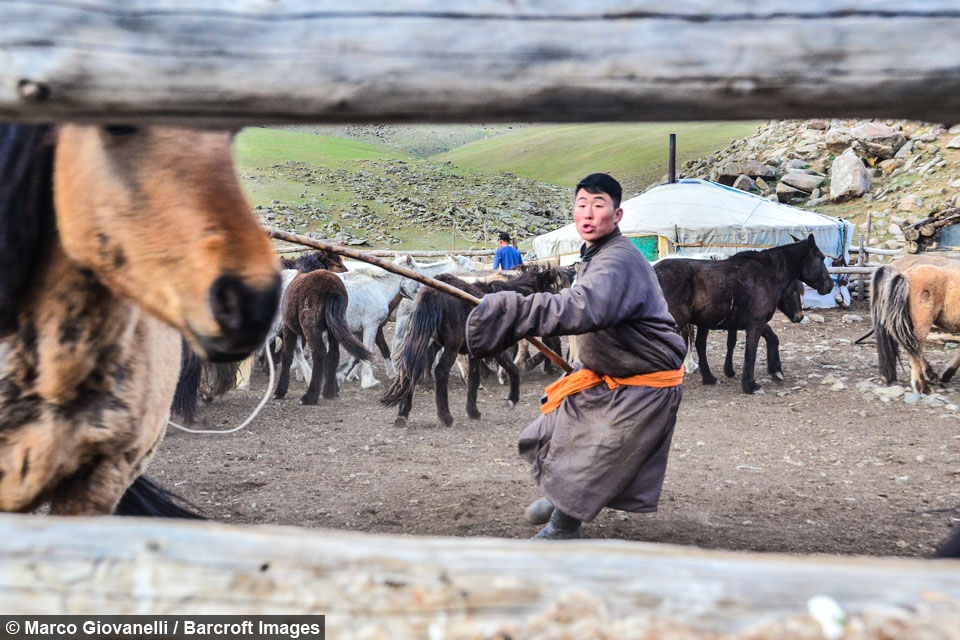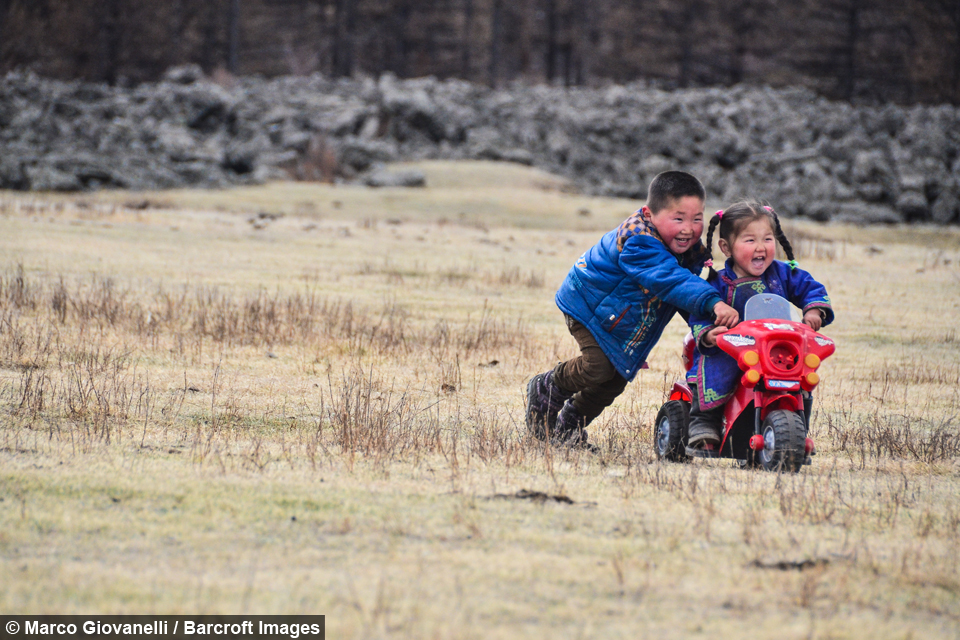Back to basics: Photographer gives up his luxuries to live with a nomadic family
By Shannon Lane @shannonroselane
Scroll down for the full story
Marco Giovanelli stayed with several nomadic families for just under two weeks in late April 2016.
The nomadic families live in open-plan houses called ‘gers’, where much of their daily activities take place, creating a strong sense of community.
He said: “The experience of living closely to the families is the best way to know and understand this amazing country.
"I was with each family for a few days to experience real nomadic culture and to try dairy product making, sheep herding, mare and cow milking.”
The nomads are mostly self sufficient, living off the land and their herd. This basic way of life means they lack the usual facilities most Europeans are accustomed to.
He said: “Every day we woke at 7am to bring the milk from the sheep and goats. Then with all the family members we had breakfast, which was fresh milk and dinner leftovers, nothing is thrown away.
“I helped to cook some Mongolian meals, bring the water from the river and collect fuel for the fire. The evening in the ger was a time for eating, drinking vodka, telling funny stories and singing.”
“Depending on the location of the ger, they may not have wood to burn for their fire. So they use dried out dung, which burns very well.
“Several families I stayed at didn’t have toilets. Everyone shares the same outhouse, which might not even have all four walls, leaving it open to the elements.”
Despite their fundamental lifestyle, the children go to school in the main village when they are six years old, enabling them to have an education.
The recent increase in tourism is changing the traditional nomad life and many families build a second ger tent for tourists to stay in, creating a source of secure income.
Giovanelli said: “Nomadic people are extremely generous, happy and always smiling.
“The father of one of the families said ‘When you are a nomad, your life is lived in relation to the rest of the family.’”







